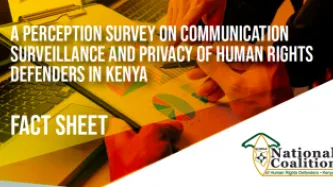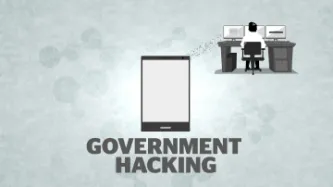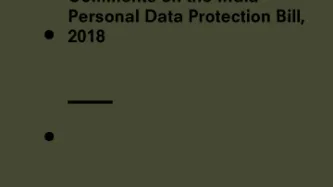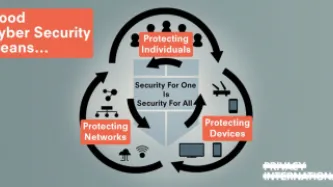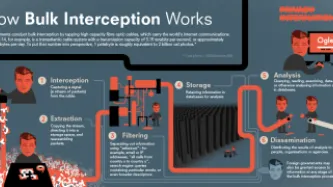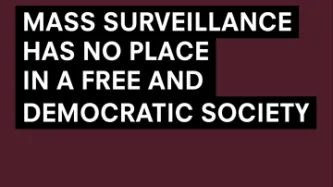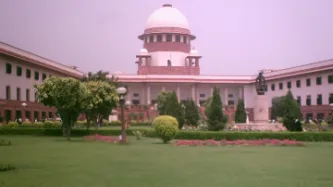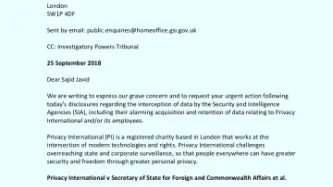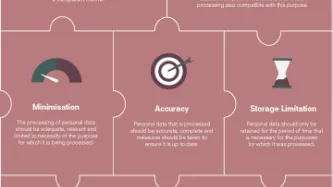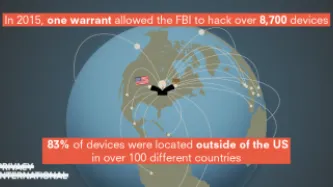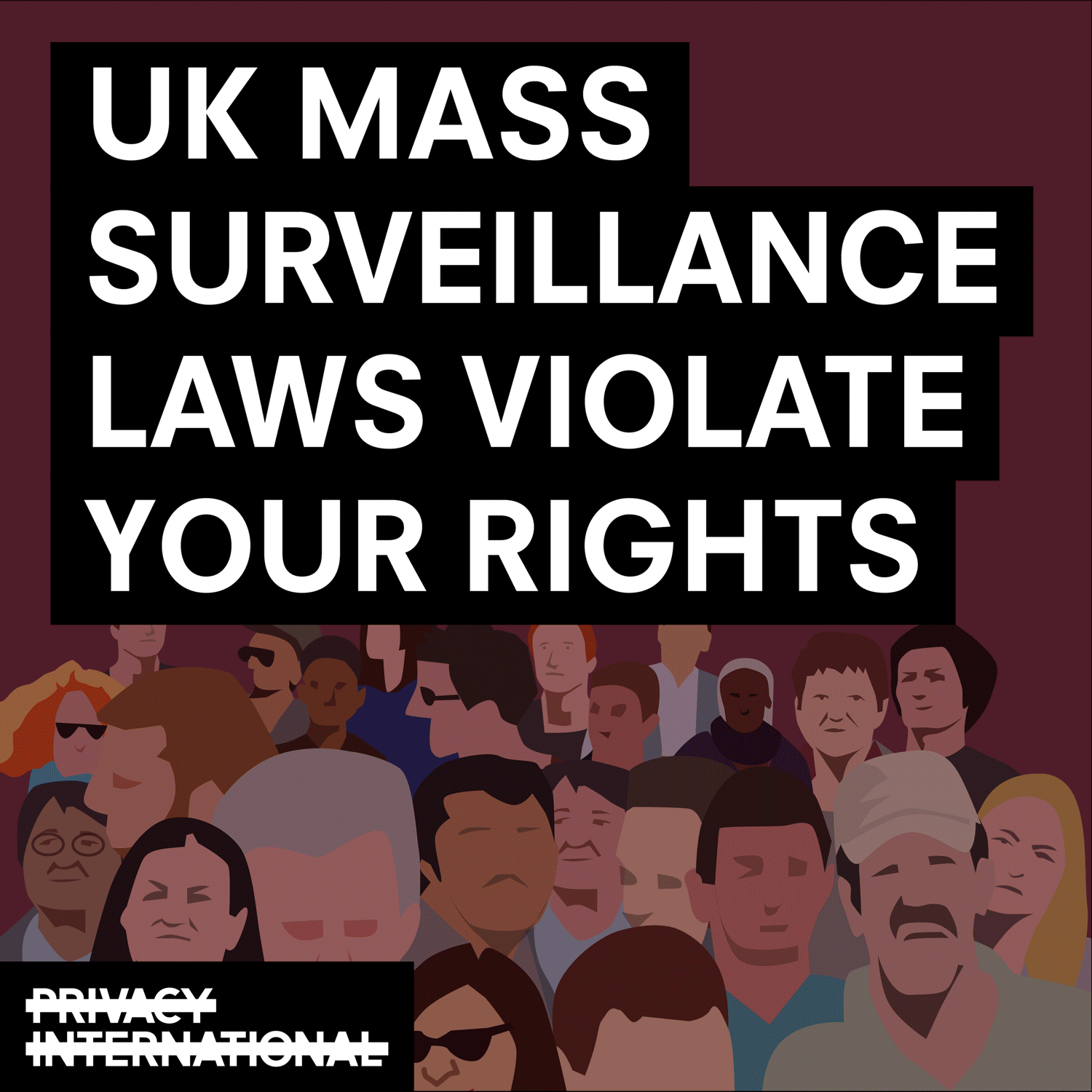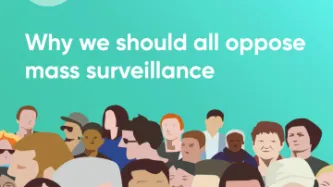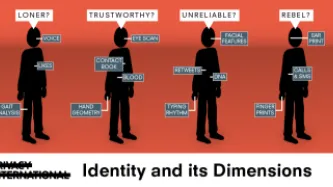Search
Content type: Advocacy
Este informe es presentado por Derechos Digitales, Ciudadano Inteligente, Fundación ProAcceso y Privacy International. Derechos Digitales es una organización no gubernamental de defensa, promoción y desarrollo de los derechos humanos en el entorno digital. Ciudadano Inteligente es una organización dedicada a fortalecer la democracia y reducir la desigualdad a través de la transparencia y la participación ciudadana. Fundación ProAcceso se dedica a la defensa del derecho de acceso a la…
Content type: Examples
In 2018, documents obtained by a public records request revealed that the Los Angeles Police Department required its analysts to maintain a minimum of a dozen ongoing surveillance targets identified using Palantir software and a "probable offender" formula based on an LAPD points-based predictive policing formula. The Palantir software, which LADP began using in 2011, analyses data from myriad police sources that LAPD says helps target chronic offenders and lower crime rates. Critics such as…
Content type: Examples
In 2017, the head of China’s security and intelligence systems, Meng Jianzhu, called on security forces to break down barriers to data sharing in order to use AI and cloud computing to find patterns that could predict and prevent terrorist attacks. Meng also called for increased integration of the footage from the country's surveillance cameras and suggested that AI could "improve the predictability, accuracy and efficiency of social management". China is investing heavily in AI, expecting to…
Content type: Examples
In May 2018, US Immigration and Customs Enforcement abandoned the development of machine learning software intended to mine Facebook, Twitter, and the open Internet to identify terrorists. The software, announced in the summer of 2017, had been a key element of president Donald Trump's "extreme vetting" programme and expected to flag at least 10,000 people a year for investigation. ICE decided instead to opt for a contractor who could provide training, management, and human personnel to do the…
Content type: Long Read
As our four year battle against the UK government’s extraordinarily broad and intrusive hacking powers goes to the Supreme Court, we are launching a new fundraising appeal in partnership with CrowdJustice.
We are seeking to raise £5k towards our costs and need your help. If we lose, the court may order us to pay for the government’s very expensive army of lawyers. Any donation you make, large or small, will help us both pursue this important case and protect the future ability of…
Content type: Report
In December 2018, the National Coalition of Human Rights Defenders-Kenya published a report analysing the needs and concerns of human rights defenders (HRD) in relation to privacy, data protection and communications surveillance.
A summary of their findings is below. Access the full report on their website.
Content type: Examples
Following the 9/11 attacks in 2001, the New York City Police Department installed thousands of CCTV cameras and by 2008 in partnership with Microsoft had built the Lower Manhattan Security Coordination Center to consolidate its video surveillance operations into a single command centre that also incorporated other sensors such as licence plate readers and radiation detectors. In 2010 as part of its Domain Awareness System, the NYPD began integrating cutting-edge video analytics software into…
Content type: News & Analysis
Data sharing among states is gaining prominence, particularly in light of the need to coordinate counter-terrorism activities across borders. The President of the European Commission put it in stark terms just a couple of months ago: “Terrorists know no borders. We cannot allow ourselves to become unwitting accomplices because of our inability to cooperate.” And several UN Security Council resolutions have emphasized the need for international cooperation in counter-terrorism.
Privacy…
Content type: News & Analysis
Privacy International notes a recent ruling issued by Italy’s Supreme Court (Corte di Cassazione) that addresses the need to limit government hacking powers for surveillance purposes and articulates required safeguards when hacking is conducted as part of a criminal investigation.
The ruling addresses the appeals of several individuals involved in a case of corruption; the appeals challenge irregularities in the collection of data as part of the criminal investigation, which resulted in the…
Content type: Advocacy
Privacy International welcomes the effort by the Government of India to reaffirm its commitment to upholding and respecting the right to privacy, and for noting the need to regulate the processing of personal data as essential for the protection of privacy through the adoption of a data protection law.
The urgent need for this legislation has been validated in the Supreme Court decision regarding the Aadhaar Act, which stipulates the need for a robust data protection regime. …
Content type: Long Read
Since 2004, October has been designated National Cyber Security Awareness Month in the United States. Many other countries have followed suit, as part of the effort to raise awareness about the importance of cybersecurity, and how we can all work together to improve it.
However, cyber security (or sometimes, just ‘cyber’) has not only become a term with multiple and sometimes contradictory meanings - that go from digital security or digital diplomacy to criminal activities with a digital…
Content type: News & Analysis
Image attribution: By Blue Diamond Gallery CC BY-SA 3.0.
In March 2017, when the UN Human Rights Council requested the High Commissioner for Human Rights to prepare a report on the right to privacy in the digital age, including the responsibility of business enterprises, Cambridge Analytica was an obscure company among others. A year later the data exploitation scandal erupted, leading to plenty of soul searching by politicians in US, UK, Europe and elsewhere, pledges of…
Content type: Long Read
Photo credit: Pixabay
This piece was originally published in iNews
It seems that you can’t go anywhere online at the moment without being reassured that ‘we respect your privacy’ and being directed to a 2,000-word privacy policy. You probably just click ‘got it, thanks’ because who has the luxury to stop and think about what their ‘privacy’ actually means?
But privacy is something that starts becoming far less abstract when you can see how it is being threatened and undermined, every day and…
Content type: Long Read
This piece was originally published in Just Security.
Earlier this month, the European Court of Human Rights issued a major judgment in three consolidated cases challenging the U.K. government’s mass interception program, which was first revealed by Edward Snowden in 2013. That judgment finds notable deficiencies in the legal framework governing mass interception, rendering the program unlawful under Articles 8 and 10 of the European Convention on Human Rights (ECHR), which protect the rights…
Content type: Long Read
Written jointly by Privacy International and the American Civil Liberties Union (ACLU).
In a landmark decision earlier this month, the European Court of Human Rights ruled that one of the mass surveillance programs revealed by Edward Snowden violates the rights to privacy and freedom of expression. While the case challenges the U.K. government’s mass interception of internet traffic transiting its borders, the court’s judgment has broader implications for mass spying programs in Europe and…
Content type: Long Read
Image attribution: By Legaleagle86 at en.wikipedia, CC BY-SA 3.0.
In a long-anticipated judgment, the Indian Supreme Court has ruled that India's controversial identification system Aadhaar is Constitutional. They based their conclusion on notes that there are sufficient measures in place to protect data, and that it is difficult to undertake surveillance of citizens on the basis of Aadhaar.
But there is some good in this ruling. The court has demanded that the Government introduce…
Content type: Long Read
The UK's domestic-facing intelligence agency, MI5, today admitted that it captured and read Privacy International's private data as part of its Bulk Communications Data (BCD) and Bulk Personal Datasets (BPD) programmes, which hoover up massive amounts of the public's data. In further startling legal disclosures, all three of the UK's primary intelligence agencies - GCHQ, MI5, and MI6 - also admitted that they unlawfully gathered data about Privacy International or its staff. You can read the…
Content type: Press release
Thames House, Offices of MI5. Photo Credit: Wikimedia Commons
MI5 collected Privacy International’s private data and examined it
GCHQ, MI5, and MI6 unlawfully collected data relating to UK charity Privacy International
Privacy International has written to the UK's Home Secretary demanding action against spy agencies
Disclosures come less than a fortnight after UK laws on mass surveillance ruled unlawful at European Court of Human Rights
The UK's domestic-facing intelligence…
Content type: News & Analysis
“The gathering and holding of personal information on computers, data banks, and other devices, whether by public authorities or private individuals or bodies, must be regulated by law.”
- UN Human Rights Committee, General Comment No. 16, 1988
Underpinning the obligations of those who process personal data, both public and private institutions, the grounds on which they may do so, and the rights of individuals, there are various data protection principles…
Content type: News & Analysis
This piece was originally published on Just Security.
Ten years ago, an FBI official impersonated an Associated Press reporter to lure and track a teenager suspected of sending in prank bomb threats to his school. To find him, the FBI agent, posing as a reporter, sent the teenager links to a supposed story he was working on, but the links were infested with malware that once clicked on quickly exposed the teen’s location. More recently, the FBI has seized and modified websites so…
Content type: Long Read
Yesterday, the European Court of Human Rights issued its judgement in Big Brother Watch & Others V. the UK. Below, we answer some of the main questions relating to the case.
What's the ruling all about?
In a nutshell, one of the world's most important courts, the European Court of Human Rights, yesterday found that certain UK laws about how intelligence agencies can spy on our internet communications breach our human rights. These surveillance laws have meant that the UK intelligence…
Content type: News & Analysis
Today was a big day for the privacy of millions of people. The European Court of Human Rights has today ruled that UK laws enabling mass interception of our communications violate the rights to privacy and freedom of expression. This finding is an important victory for human rights and the rule of law.
The judges found that:
The UK’s historical bulk interception regime violated the right to privacy protected by Article 8 of the European Convention on Human Rights (ECHR) and to free…
Content type: Long Read
The European Court of Human Rights ruled today that the UK government's mass interception program violates the rights to privacy and freedom of expression. The Court held that the program "is incapable of keeping the 'interference' to what is 'necessary in a democratic society'". This finding is an important victory for human rights and the rule of law. Below, we break down the key parts of the decision.
The Court's ruling comes after a five-year battle against two UK mass surveillance…
Content type: Press release
The European Court of Human Rights has today ruled that UK laws enabling mass surveillance violate the rights to privacy and freedom of expression.
Judges found that:
The UK’s historical bulk interception regime violated the right to privacy protected by Article 8 of the European Convention on Human Rights (ECHR) and to free expression, protected by Article 10.
The interception of communications data is as serious a breach of privacy as the interception of content, meaning the UK…
Content type: Report
Intelligence sharing between countries is one of the most pervasive and least regulated surveillance practices carried out by governments across the world. It is facilitated by rapidly evolving surveillance technologies that enable intelligence agencies to collect, store, analyse and share ever larger amounts of people’s personal information.
This briefing paper, written jointly by the International Network of Civil Liberties Organizations (INCLO) and PI, sets out urgent recommendations that…
Content type: Long Read
The Sustainable Development Goals (SDGs) are the United Nations-led initiative to define the development agenda. Building on the eight Millennium Development Goals, the SDG’s 17 goals – and the 169 targets – serve as an opportunity to tackle many of the most pressing issues in the world today. The SDGs are also explicitly grounded in human rights. Goal 16 on “peace, justice, and sustainable institutions” aims to “Promote peaceful and inclusive societies for sustainable development, provide…
Content type: News & Analysis
This post was written by William Marks, a former volunteer at Privacy International.
The right to privacy is central to the protection of human dignity, and supports and reinforces other rights, such as the right to freedom of expression and association. Privacy International, supported by the International Human Rights Clinic at Harvard Law School, recently submitted a joint stakeholder report to the United Nations Human Rights Council regarding New Zealand’s protection of the right to…
Content type: Long Read
Privacy International’s new report shows how countries with powerful security agencies are training, equipping, and directly financing foreign surveillance agencies. Driven by advances in technology, increased surveillance is both powered by and empowering rising authoritarianism globally, as well as attacks on democracy, peoples’ rights, and the rule of law.To ensure that surveillance powers used by governments are used to protect rather than endanger people, it is essential that the public,…





